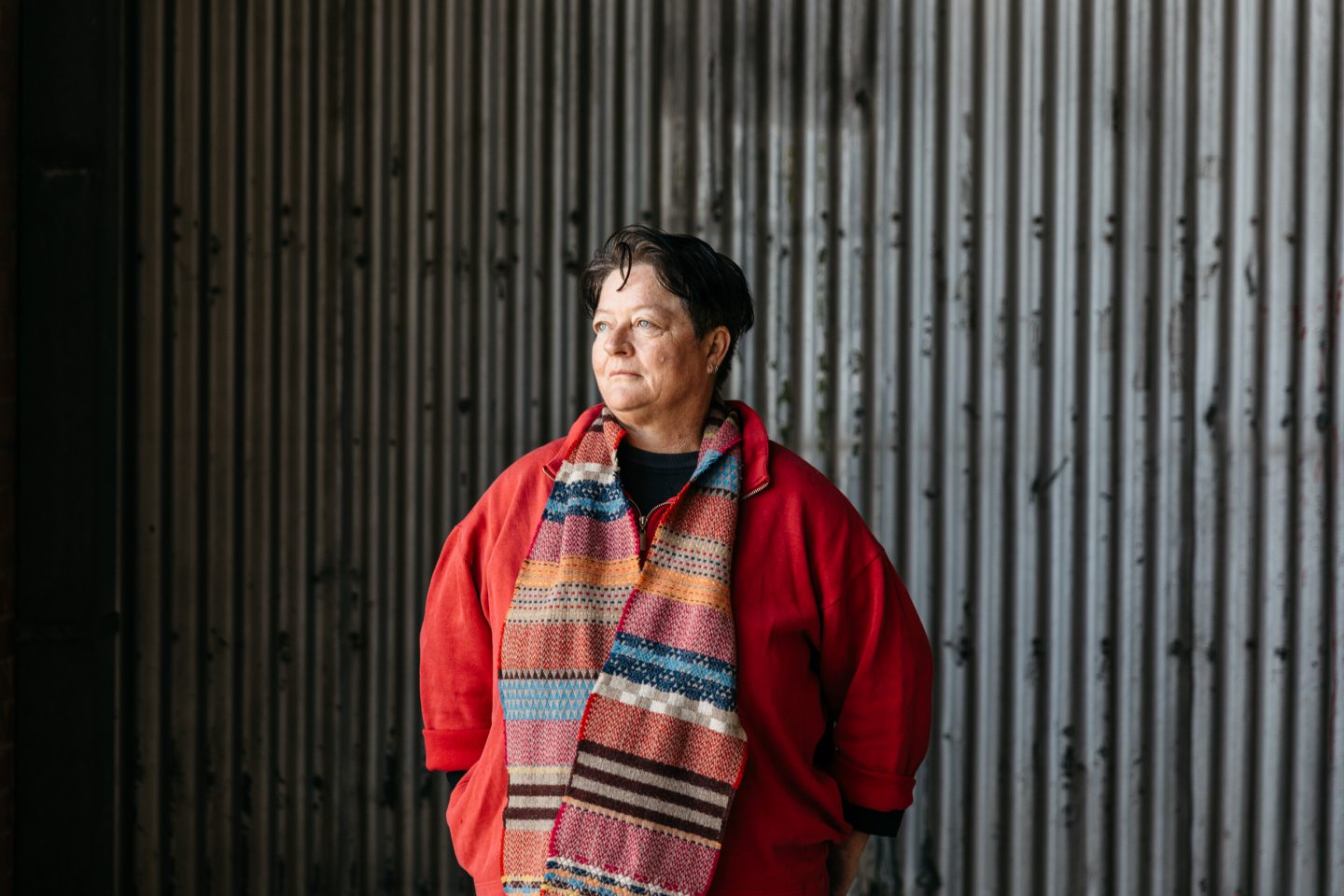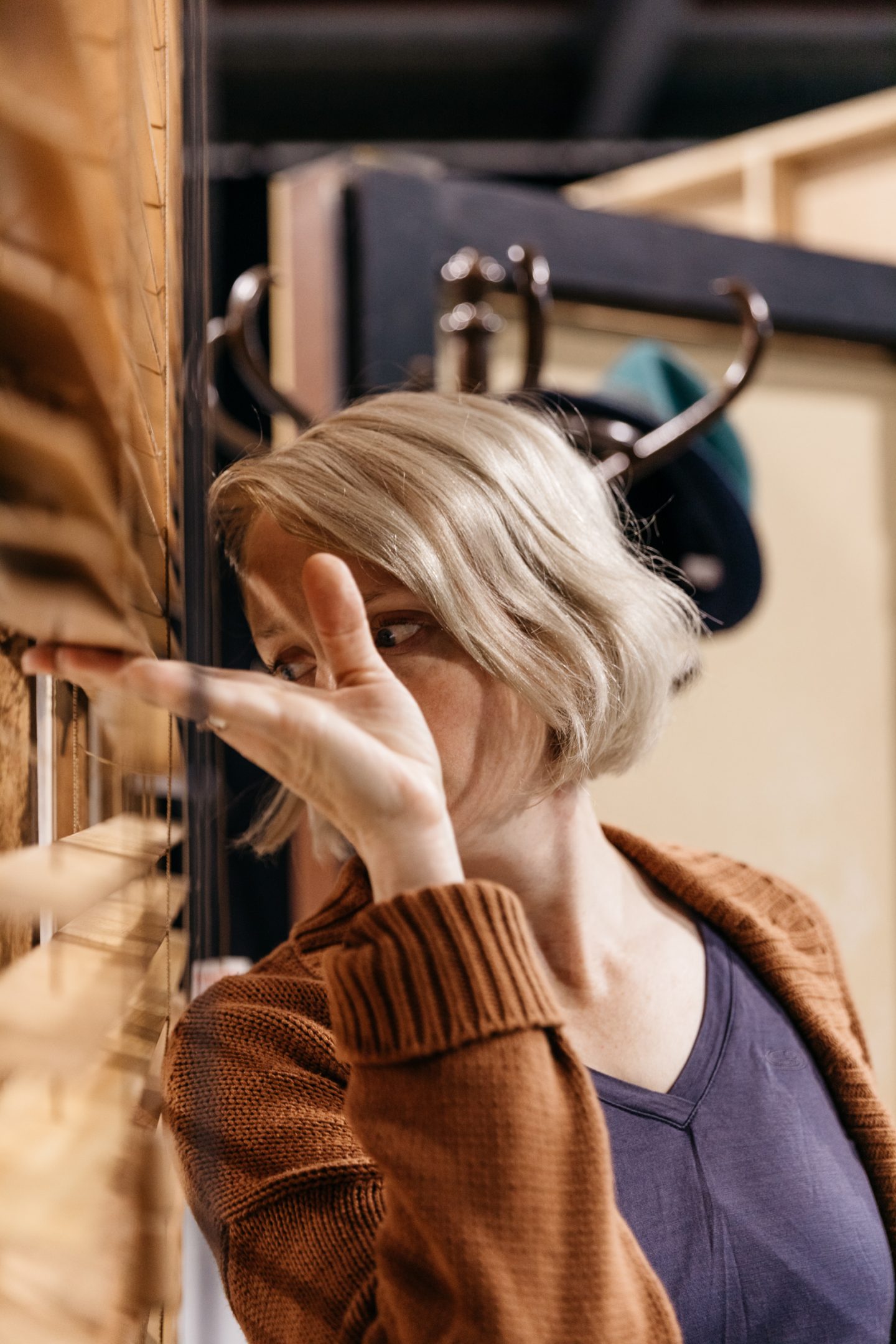Gaslight was originally programmed by State Theatre Company to be performed at the Dunstan Playhouse. But then, few things in 2020 have gone to plan. Since COVID-19 hit in March, five State Theatre productions have been scrapped. Now rehearsals have begun, costumes, and set details are being finalised, and – in a happy coincidence – Gaslight will become the first major production at the newly renovated Her Majesty’s Theatre.
Director Catherine Fitzgerald is thrilled to be back in any theatre after much of the industry was forced to close due to COVID-19 restrictions. But she says the venue “fits perfectly” with the work, and the creative team will be “paying homage to the theatrical space as much as to the play”.
Patrick Hamilton’s 1938 Gaslight is a domestic thriller that is experiencing a resurgence in theatres around the world. It’s the basis of a 1944 film starring Ingrid Bergman, and recent stagings have ranged from contemporary all-women productions to the traditional period reading as chosen by the State Theatre Company. To explain its popularity, Fitzgerald points to the relevance of the themes of the play today – despite it being set in the 1880s.
“It’s a melodramatic thriller which explores serious topics: domestic violence, and patriarchal power. It’s really deep in class and gender as well. Relationships are at its core.”
In Gaslight, Bella Manningham experiences what has now come to be known as gaslighting, the psychological manipulation of a person to the point where they question their sanity and identity.
“The term has come from this play and seems to have been appropriated, especially in the last couple of years. In fact, in 2018 it was [one of] Oxford Dictionary’s most popular words,” says Fitzgerald.
 Catherine Fitzgerald
Catherine Fitzgerald
As Bella’s marriage becomes more and more insular, we are able to see the impacts of Jack Manningham’s power over his wife. Giving voice to this ordeal and seeing it playing out in front of them, Fitzgerald believes the audience will gain a further understanding of experiences that remain “hugely prevalent in Australia and around the world”.
“There are still women living in circumstances which invite the question ‘why don’t you just walk away?’ when [they’re] in the midst of domestic violence, where they are being gaslighted and psychologically tortured and [are] full of fear for their lives. I think the play was – and is – a very acute study of a domestic violence relationship.
“Often once people are out of domestic violence situations they feel full of anger towards the perpetrator and towards themselves. Often things don’t seem rational: How could I have done that? How did they do it? So I think [Gaslight] is actually very relevant and the audience will join the dots.”
Part of the attraction for Fitzgerald was that the play takes place entirely in a single room, something she says is rarely staged anymore. This “claustrophobic, damp, dank, turn of the 19th century” setting allows the designers to help build the suspense in the theatre, but also show a world coming undone.
Fitzgerald is also drawn to the layers in the work, saying it is “not just [about] feminism, but class and politics [too], which I think sometimes – particularly at the moment – are sort of left aside”. The housemaids, Elizabeth and Nancy, perform important roles in the play and Fitzgerald speaks to their allowing her to pay homage to Hamilton’s politics.
“It’s interesting that Patrick Hamilton was a Marxist; what he saw was capitalism and what it was doing to people.
 Logos in rehearsal
Logos in rehearsal
“We’ve known for a long time that … women get treated differently from men, and also that men get treated differently from some women, so it’s not a linear process of oppression and agency.”
Catherine Fitzgerald
“We’ve known for a long time that … women get treated differently from men, and also that men get treated differently from some women, so it’s not a linear process of oppression and agency.”
In a play ripe for gender, class and political discussion, Fitzgerald reflects that while the play is full of serious issues in some ways it’s also a fun thriller.
“It’s a frolic,” she says. “Like watching any thriller movie there will be an element of violence, but the audience [will be] on the edge of their seats … and there’s also some great humour. [There is] a sensitivity to what we’re doing. That’s what is going to carry it.”
Ultimately, Fitzgerald believes Gaslight will entertain. After months away from theatres, it is something actors, crew, the theatre community and audiences will cling to. Amidst a landscape of fear and disease, seeing grand old theatres reopening and productions back on stage offers a move towards some sense of normality.
4 – 19 September
State Theatre Company: Gaslight
Kylie Maslen is a writer and critic from Kaurna/Adelaide, and the author of Show Me Where it Hurts: Living with Invisible Illness (Text Publishing).
Get the latest from The Adelaide Review in your inbox
Get the latest from The Adelaide Review in your inbox